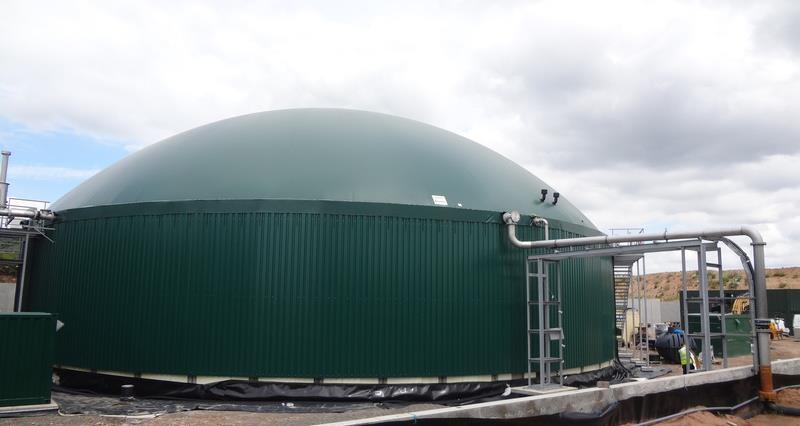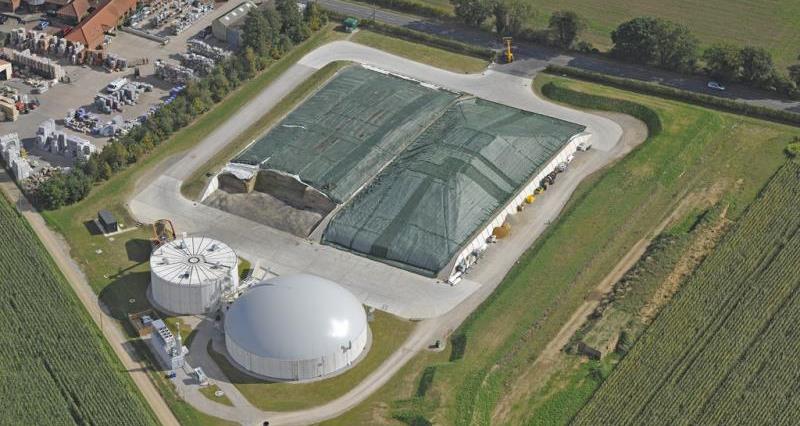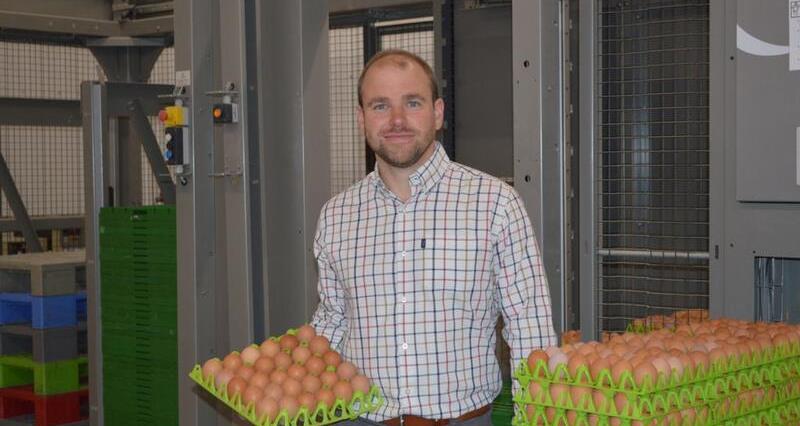By becoming an integral part of the farm business or by expanding its portfolio, AD (anaerobic digester) plants can have a transformative effect on not just the farm business but the wider farming community.
Find out how these trailblazing farmers have reaped the rewards of installing AD plants.
Wyke Farms
NFU members saw the writing on the wall for fossil fuels more than a decade ago, especially when their electricity bills suddenly increased by £10,000 a month.
Nevertheless, in 2013 it was still a leap of faith for the Clothier family, and indeed their bank, to finance an anaerobic digester plant on the edge of Bruton in Somerset.
Fast forward to the present day, and their extraordinary prescience has put their family farm and cheese-making company in an enviable position and may even have secured its future.
“We’re now farmers, cheesemakers and energy generators.”
Managing director of Wyke Farms Richard Clothier
Wyke Farms’ anaerobic digesters are fed with slurry, cheese whey permeate, rape straw, milled bread waste, apple pomace and the cleanings from ships carrying substrates such as grains and soya. The resulting gas is pumped into CHP (combined heat and power) units to convert it into enough electricity to run its dairy operation, visitor centre, offices and fleet of delivery vehicles, including a brand new milk tanker.
Any excess electricity is sold to the ‘green energy’ company Good Energy, while unused gas is cleaned and treated before then being put into the public system.
Meanwhile, nitrogen and phosphorus-rich digestate is used on fields around the farm and has saved the company countless thousands of pounds in fertiliser costs.
Wyke Farms now operates five anaerobic digesters, each with a 4,600m³ capacity and double membrane hood spaces each capable of holding 1,500m³ of gas. Altogether, the entire plant has cost more than £20 million to build, but Richard says that savings in energy costs of more than £1 million a year ensure that it has already paid for itself.
“We’re now farmers, cheesemakers and energy generators,” he adds.
Foreva Farmers
An anaerobic digester plant has put the fizz into farming for three generations of the Layton family.
In the spring of 2024, they founded , manufacturing and canning a range of fizzy drinks using natural ingredients together with carbon dioxide and electricity produced from biogas generated on their farm at Hampton Bishop in Herefordshire.
As well as bringing the world’s first range of carbon neutral mixers to the market, there’s been sufficient capacity to can drinks for other manufacturers too. Heating and electricity for the family home, poultry sheds and several new business units on the farm are all also provided by the AD plant.
The Laytons have been farming in Herefordshire since 1955. They produce wheat and energy crops on 800 acres of land and raise poultry. Their AD plant was installed in 2011.
“I was growing potatoes at the time and had a potato assurance meeting with the agronomist John Davies, a Nuffield Scholar who had produced a report called ‘Waste Applications to Land – Opportunity or Threat’,” explains NFU member Nick Layton. “That day I phoned a local cider maker and said I would like to take their apple pomace.
“In recent years we’ve taken pomace from various other producers and we provide some of them with carbon dioxide, which is used to carbonate their cider and has enabled them to take 60,000 miles off their road journeys each year. We also fuel the AD plant with maize, hybrid rye and triticale.”
Digestate from the AD plant goes onto land farmed by the family.
Nick says green energy has come a long way since 2011, but work is needed to upgrade the infrastructure in the UK so there are sufficient power lines to transfer it from farms.
Bloomin’ Amazing
Gardeners are bulking up their soil using a mulch created by an anaerobic digester in Dorset that produces biomethane for the National Gas network.
is the by-product from processed rye and maize, grown by a group of 16 farmers, two of whom are tenants of land owned by the Duchy of Cornwall.
The idea to build the AD plant on a former dairy farm on the edge of Martinstown followed the creation of Poundbury, an urban extension to Dorchester.
“Going forwards, I think people have to consider collaboration, because driving down costs has got to be what it’s all about.”
Founder of Bloomin' Amazing Nick Finding
The Duchy of Cornwall had the ambition of powering at least 20% of properties using renewable energy and eventually joined forces with farmers Nick Finding, Frank van Nes and Howard Mason, and Hamish Bichan, to create a new joint venture.
Initially the idea was to pipe the gas to a combined heat and power unit in Poundbury, which would have been 40% efficient, but it was decided to upgrade the gas and put it into the National Gas network, making it 90% efficient.
Meanwhile, the liquid and solid digestate produced is used to improve the organic content of chalky soils in Dorset, with a proportion being bagged and sold at garden centres to use as a garden mulch since 2018.
The energy plant, along with its associated West Country Soil Improvement Company and Bloomin’ Amazing, were sold to the French company Engie in February 2024, although the farmers still supply the feedstock for the plant.
Nick, who says he and his colleagues were pleased to be in a position to reap some of the benefits of their investment and risk, believes collaboration was a key factor in the success of the project.
“Going forwards, I think people have to consider collaboration, because driving down costs has got to be what it’s all about,” he says.



